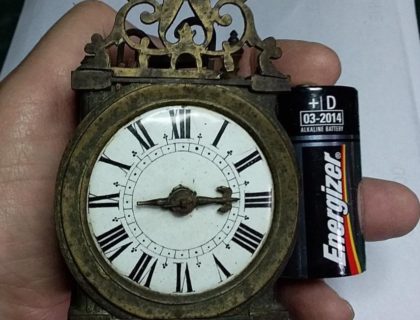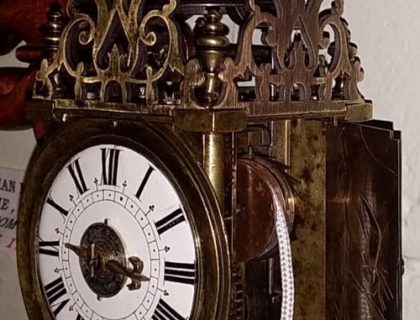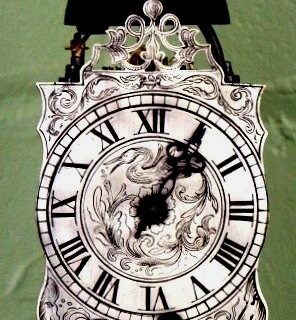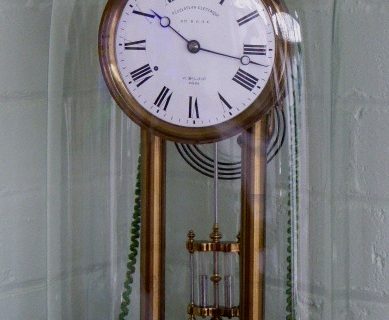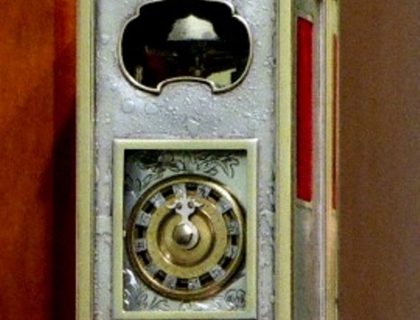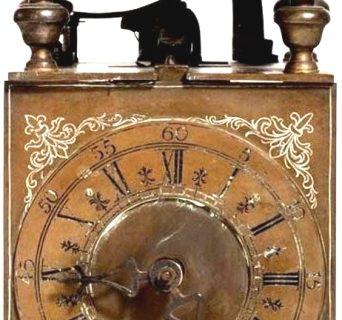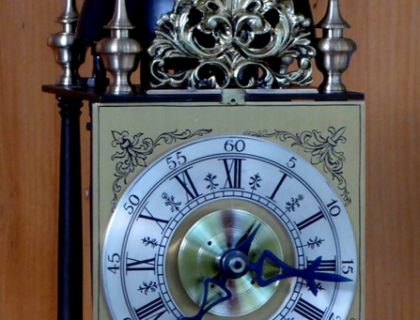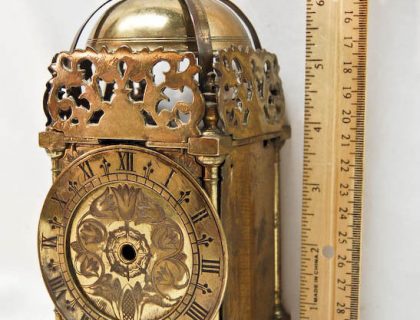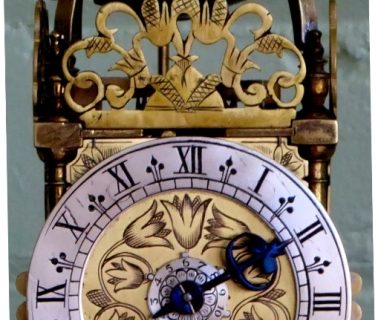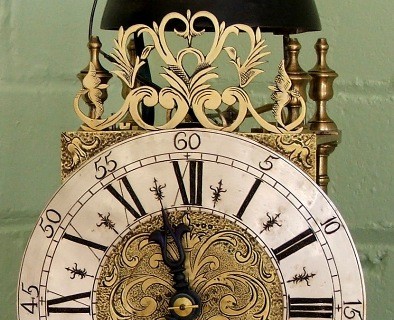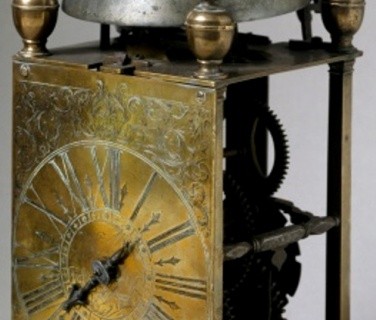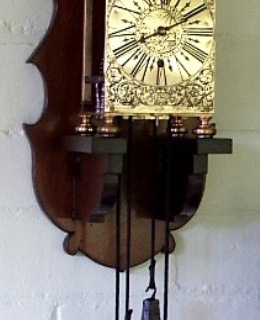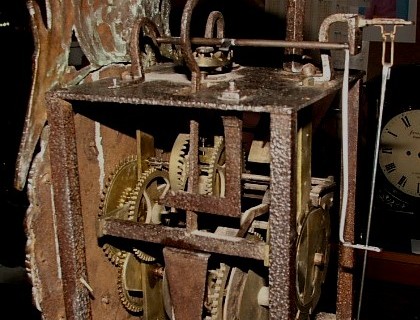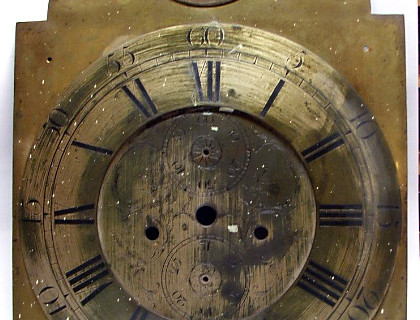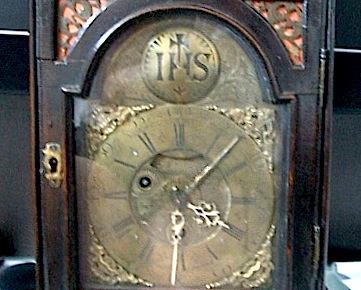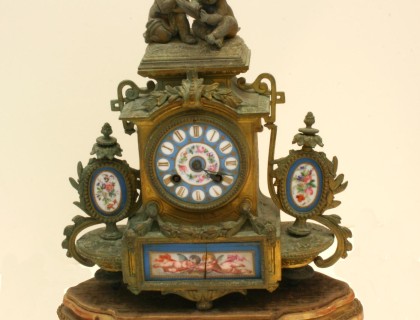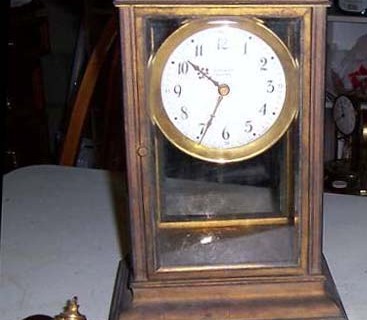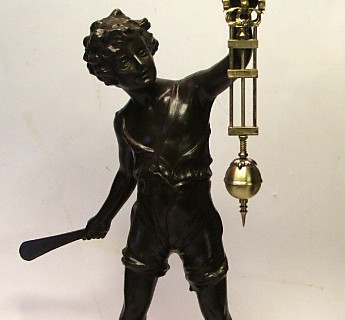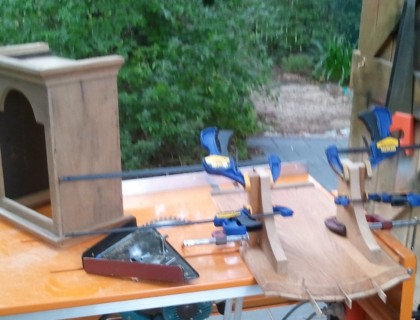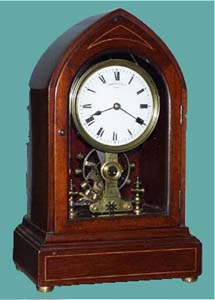Lantern clocks were the earliest domestic clocks available to the general public. This type of clock was a development from the earlier “chamber clocks”which were only affordable by the “ruling class” of society.
Lantern clocks were produced by almost all Western European countries and Japan in the 17 -18th Centuries. Initially with foliot and balance wheel …
Read more »
Domestic clocks first started to appear in the early 1600’s and hence it is possible for a clock-maker/restorer of today, to be asked to service and repair clocks up to 400 years old! Naturally it requires knowledge of the methods and materials used through out the centuries to ensure that any work done on a …
Read more »
The dial is the focal point of the clock and it obviously has to be readable at a distance for the clock to perform its duty, ie. display the hour of the day.
Dials can be engraved metal, printed on metal, plastic or paper, have applied numerals, painted on wood or metal , fired in porcelain, …
Read more »
Many old clock cases are in need of structural refurbishment due to the failure of old adhesives, woodworm, abuse and accidental damage. Also the exterior finish of the case becomes dull, dirty and often over-lacquered or painted.
The refurbishment of such clocks is done with regard for the age, original finish and …
Read more »
1. FULL CASE RESTORATION.
This magnificent French clock, c.1890, once gilded all over, had been cleaned to the point where all the gilt had been abraded away leaving traces in hidden places only.
…
Read more »
Brass and silver cased clocks, in particular, are subject to oxidation and tarnishing due to reaction with the air, pollution and moisture therein. Most cases were originally lacquered to prevent the deterioration however in many cases this lacquer breaks down with time or is polished away.
These cases may be returned to their original glory by …
Read more »
Junghans swinger mystery clocks are regularly found with the figurine’s arm damaged or broken . These figurines are “lost wax”castings and so are hollow and quite fragile at certain places of the figurine. Typically the breakage occurs on the arm of the human figurines and on the support component of the animal figurines, ie. the …
Read more »
It is not uncommon for a clock mechanism to be separated from its original case. Wooden cases deteriorate due to moisture, heat, glue failure, abuse and accident. Metal cases rust, oxidize, break or fall apart due to joint failure. Stone cases fall apart due to adhesive failure and accident.
As a result of these situations many …
Read more »
The use of small batteries in clocks began in the mid 1800’s and continued as interest in electrical appliances grew through to the 20th century. Early dry cell batteries ( Leclanche cells ) were small glass containers then progressed to the more familiar zinc cased cell all of which were prone to leak and cause …
Read more »



